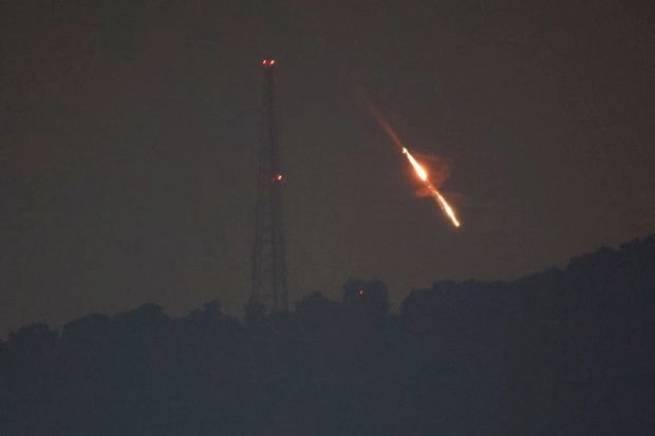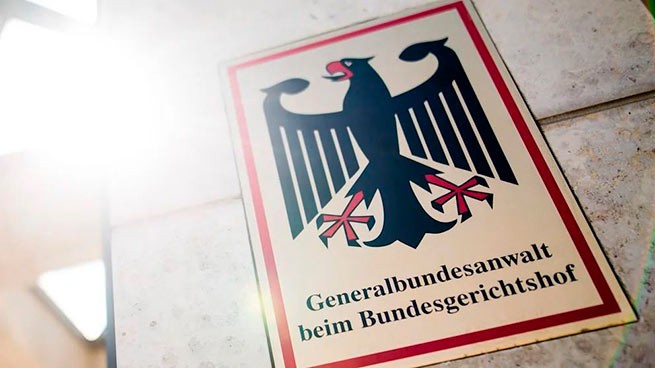The crisis adversely affects the mental state of a person, according to experts. And when the “critical” situation lasts for years, then what can I say.
According to a report by the Greek Center for Suicide Prevention NGO Klimaka, the number of suicides in the country has been steadily increasing over the past three years, from 2018 to the present. Most suicides were committed by men, as well as citizens aged 50 to 59, compared with other age groups.
Early in the morning of February 18 this year, an alarm was raised at the Red Cross Hospital (Ερυθρός Σταυρός, Κοργιαλένειο-Μπενάκειο) when a woman climbed onto the roof of a high-rise building and threatened to jump down.
Police and firefighters arrived at the scene and began to work with the suicide: they tried to convince the woman, who reportedly went to the emergency room of the hospital early in the morning.
According to channel information open, the efforts of specialists were crowned with success. The woman went downstairs unharmed.
What is happening to us?
According to a report by the Greek Center for Suicide Prevention NGO Klimaka, the number of suicides in the country has been steadily increasing over the past three years, from 2018 to the present. Most suicides were committed by men, as well as citizens aged 50 to 59, compared with other age groups.
The regions with the highest death rate from suicide are: Crete, Thessaly and Attica. The most common method over the past three years is hanging. In second place is a fall from a height.
The period during which the highest suicide rate is recorded falls on the spring and summer months (March to August). At the same time, according to “Climate” (παρατίρρώώώίί αέέττώώ ώώέέέ έέέτ έέέέ έέέ αητόόόίί ςς μςόόόίίίς ςς μκτττίίίί τςς μκοοςίίίίς τςς μκττίίίκ)), in recent years, in Greece, the life of more than 500 people committed suicide in Greece, leaving annually at least 5,000 grieving.
According to international studies, every suicide is mourned by at least 5-10 people who experience not only the emotional burden of mourning, but also the psychosocial consequences of suicide. About 135 people on average are considered directly affected by each suicide.
Experts believe that suicide statistics do not correspond to real data, and the figures are significantly underestimated. For example, in Greece there are no data on non-fatal suicide attempts, which are estimated to be almost 25 times higher than the number of recorded voluntary deaths. The latest official data from the Hellenic Statistical Office, analyzed by the Center for Suicide Prevention regarding the causes of death in Greece, indicates an increase in suicides of about 8.5% in 2017. In particular, the number of suicides in 2017 was 523 deaths compared to the previous year, when 484 were registered. In 2010-2017, at least 4,000 suicides were registered.
24-hour psychological support and assistance line 1018
Since the start of the hotline in 2007, more than 220,000 calls have been received. In 2019, 19,722 calls were made through the Suicide Intervention Line-1018, of which 2,369 were warnings about the intention to commit suicide. In addition, 30% of those who called the telephone line in 2018, as it turned out, had previously been hospitalized in the psychiatric departments of the country.
Data from the Center for Suicide Prevention
From the moment the Center was created until August 2020, 29,761 people turned to its specialists for help. Of these, 58% are women and 42% are men. Most of those who applied to the Center for the first time were from 19 to 50 years old. Almost 40% of visitors to the Center are unemployed.
According to Klimaka’s psychological experts, “The public health crisis has brought new data and challenges both in terms of caring for vulnerable populations and in terms of suicide prevention.” The effects of a pandemic are a process that can take several years, and its impact on mental health and self-destructive behavior is still unknown. The scientific knowledge that we have so far comes from analyzing data from previous pandemics (eg Sars virus 2003, etc.).
The numbers highlight the relationship between this psychoactive factor and the growing sense of fear, anxiety, helplessness and uncertainty about the future. Moreover, combining all this with the presence of an already existing psychological burden on already vulnerable people, provoking extreme psychopathological states in them. However, experts say any association of suicide solely with the pandemic must be avoided.
Any reference to a direct link between the pandemic and suicide could be misunderstood and oversimplify such a multidimensional issue. “Mental health professionals have taken on the responsibility of ensuring that services continue,” said a spokesperson for Klimaka, adding that this required a strategic plan of action. According to the scientific director of Klimak, psychiatrist Kyriakos Katsadoros, the number of calls to telephone lines has quadrupled during the pandemic.
“All calls were related to the anxiety of these people, worry about the future. They all asked practical questions about how they could handle the situation. Fear of the unknown mobilized the process of mental instability in society as a whole. Fear of the unknown is the biggest problem one can face,” notes Mr. Katsadoros. At the same time, the expert emphasizes that the goal of each person is to develop their own resistance to stressful situations. “We need to be able to prepare and be resilient for whatever lies ahead. A lot can happen to us, and it is not given to us to know what exactly can happen, what to be prepared for. Therefore, it is necessary to strengthen our psychological resilience,” says Mr. Katsadoros.
The Klimaka organization constantly asks the authorities to develop a national strategy for suicide prevention, as experts note that “a preventive approach can be achieved with obvious results through coordinated interdisciplinary interventions in various levels of the social sphere, as well as in the field of health and education.”
As part of this strategy, the implementation of interrelated, low-cost interventions and actions, as well as the reform of mechanisms in the field of health, education and work, will form a strong and effective network of protection for citizens who are extremely affected by the consequences of the socio-economic crisis (in addition to individual predisposing factors), which ultimately leads to self-destructive behavior.
The organization “Klimaka” presents a campaign to inform citizens with the hashtag: “I’m here” (Είμαι Εδώ” #eimaiedo). The campaign aims to collectively mobilize the population to highlight the need to develop measures to prevent suicide.
The regions with the highest death rate from suicide are: Crete, Thessaly and Attica. The most common method over the past three years is hanging. In second place is a fall from a height.
The period during which the highest suicide rate is recorded falls on the spring and summer months (March to August). At the same time, according to “Climate” (παρατίρρώώώίί αέέττώώ ώώέέέ έέέτ έέέέ έέέ αητόόόίί ςς μςόόόίίίς ςς μκτττίίίί τςς μκοοςίίίίς τςς μκττίίίκ)), in recent years, in Greece, the life of more than 500 people committed suicide in Greece, leaving annually at least 5,000 grieving.
According to international studies, every suicide is mourned by at least 5-10 people who experience not only the emotional burden of mourning, but also the psychosocial consequences of suicide. About 135 people on average are considered directly affected by each suicide.
Experts believe that suicide statistics do not correspond to real data, and the figures are significantly underestimated. For example, in Greece there are no data on non-fatal suicide attempts, which are estimated to be almost 25 times higher than the number of recorded voluntary deaths. The latest official data from the Hellenic Statistical Office, analyzed by the Center for Suicide Prevention regarding the causes of death in Greece, indicates an increase in suicides of about 8.5% in 2017. In particular, the number of suicides in 2017 was 523 deaths compared to the previous year, when 484 were registered. In 2010-2017, at least 4,000 suicides were registered.
24-hour psychological support and assistance line 1018
Since the start of the hotline in 2007, more than 220,000 calls have been received. In 2019, 19,722 calls were made through the Suicide Intervention Line-1018, of which 2,369 were warnings about the intention to commit suicide. In addition, 30% of those who called the telephone line in 2018, as it turned out, had previously been hospitalized in the psychiatric departments of the country.
Data from the Center for Suicide Prevention
From the moment the Center was created until August 2020, 29,761 people turned to its specialists for help. Of these, 58% are women and 42% are men. Most of those who applied to the Center for the first time were from 19 to 50 years old. Almost 40% of visitors to the Center are unemployed.
According to Klimaka’s psychological experts, “The public health crisis has brought new data and challenges both in terms of caring for vulnerable populations and in terms of suicide prevention.” The effects of a pandemic are a process that can take several years, and its impact on mental health and self-destructive behavior is still unknown. The scientific knowledge that we have so far comes from analyzing data from previous pandemics (eg Sars virus 2003, etc.).
The numbers highlight the relationship between this psychoactive factor and the growing sense of fear, anxiety, helplessness and uncertainty about the future. Moreover, combining all this with the presence of an already existing psychological burden on already vulnerable people, provoking extreme psychopathological states in them. However, experts say any association of suicide solely with the pandemic must be avoided.
Any reference to a direct link between the pandemic and suicide could be misunderstood and oversimplify such a multidimensional issue. “Mental health professionals have taken on the responsibility of ensuring that services continue,” said a spokesperson for Klimaka, adding that this required a strategic plan of action. According to the scientific director of Klimak, psychiatrist Kyriakos Katsadoros, the number of calls to telephone lines has quadrupled during the pandemic.
“All calls were related to the anxiety of these people, worry about the future. They all asked practical questions about how they could handle the situation. Fear of the unknown mobilized the process of mental instability in society as a whole. Fear of the unknown is the biggest problem one can face,” notes Mr. Katsadoros. At the same time, the expert emphasizes that the goal of each person is to develop their own resistance to stressful situations. “We need to be able to prepare and be resilient for whatever lies ahead. A lot can happen to us, and it is not given to us to know what exactly can happen, what to be prepared for. Therefore, it is necessary to strengthen our psychological resilience,” says Mr. Katsadoros.
The Klimaka organization constantly asks the authorities to develop a national strategy for suicide prevention, as experts note that “a preventive approach can be achieved with obvious results through coordinated interdisciplinary interventions in various levels of the social sphere, as well as in the field of health and education.”
As part of this strategy, the implementation of interrelated, low-cost interventions and actions, as well as the reform of mechanisms in the field of health, education and work, will form a strong and effective network of protection for citizens who are extremely affected by the consequences of the socio-economic crisis (in addition to individual predisposing factors), which ultimately leads to self-destructive behavior.
The organization “Klimaka” presents a campaign to inform citizens with the hashtag: “I’m here” (Είμαι Εδώ” #eimaiedo). The campaign aims to collectively mobilize the population to highlight the need to develop measures to prevent suicide.






More Stories
Building collapsed in Piraeus: 1 killed, 3 injured, 7 arrested
Six tourists were injured when a trolleybus catenary wire fell onto a tourist bus
Six tourists, passengers on a sightseeing bus, were injured in Athens